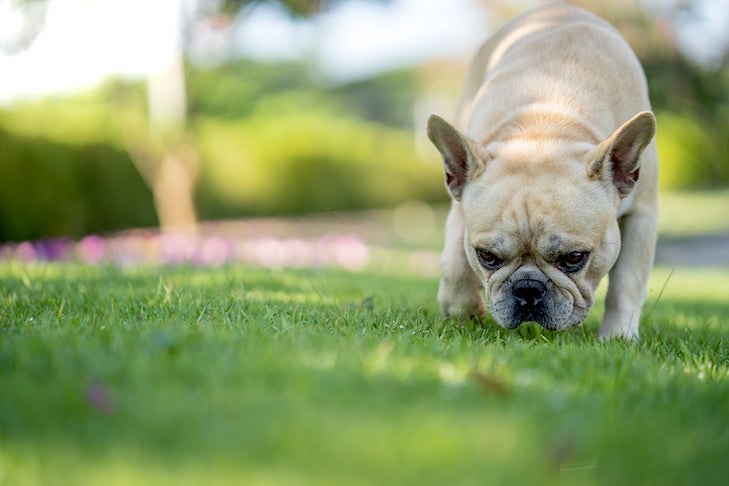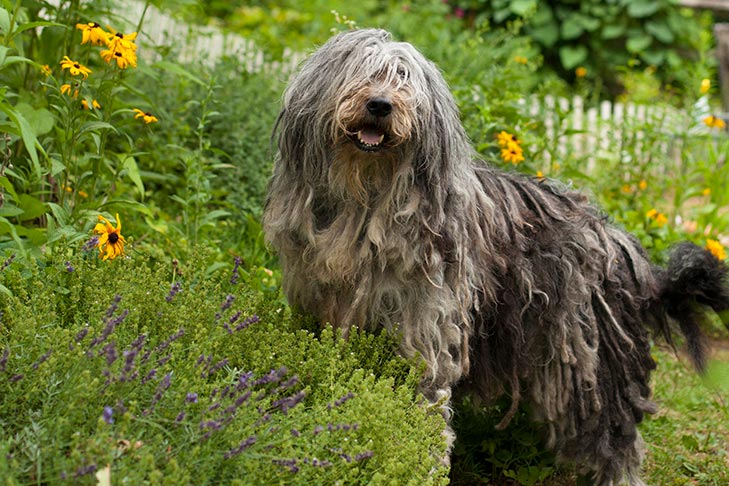
Like many dog owners, I have a dog who loves to eat. Dog food, goose poop, birdseed – you name it. Nothing very harmful in that, right?
Well, it turns out that birdseed should be saved for the birds. And here’s why.
Aflatoxin Poisoning
It’s not unusual for dogs to graze for birdseed under a feeder. Birds are messy eaters, and many seeds drop to the ground. A few choice tastes of birdseed that is fresh are not usually harmful to a dog.
However, seeds that are old or become damp may breed mold and aflatoxin. And suddenly, they can be very harmful for a dog to consume. The U.S. Food and Drug Administration (FDA) reports that, at high levels, aflatoxins can cause illness and even death in dogs.
Symptoms of aflatoxin poisoning in dogs include sluggishness, loss of appetite, vomiting, jaundice (yellowish tint to the eyes or gums due to liver damage), and diarrhea, according to the FDA. The liver is the principal organ affected, and some pets suffer liver damage without showing any symptoms.
The Cornell University College of Veterinary Medicine reports, “Aflatoxin curtails the production of cholesterol and many proteins that profoundly affect blood clotting. Physical exams and blood tests are necessary to differentiate dogs that have been poisoned from those that have not. Unfortunately, the latent onset of signs may require that an individual dog be evaluated several times.”

Birdseed Can Cause Other Problems
Dogs who gobble up a lot of seeds at one time may give themselves an upset stomach. They can even cause a blockage in the intestinal tract that can lead to bloat – a very serious condition requiring immediate attention from a veterinarian.
Some mixes of birdseed contain raisins or sultanas (a type of grape). Grapes and raisins are known to be highly toxic to dogs.
The birdseed your dog is eating is most likely to be found underneath the feeder, which means the dog is also likely to be eating bird feces. Bird feces contain a variety of bacteria and parasites that can be passed on to your dog – most often salmonella. The resulting infections can cause minor or very serious attacks of diarrhea and vomiting.
Feeding Birds, Not Dogs
It turns out that bird feeders require a lot of regular maintenance – filling them with fresh, new seed and cleaning and sanitizing them often. If you’re trying to feed the birds, but not your bird dog, take these precautions:
- Only use fresh seed, and always read the ingredients to be sure there’s nothing harmful in the mix.
- Wash and sanitize your bird feeders often – ornithologists recommend at least every two weeks, more often during heavy use or wet weather.
- Clean up any birdseed that lands on the ground.
- Use screw-on trays under the feeders to keep seeds from hitting the ground in the first place.
- Create a barrier under the feeders or plant a dog-friendly bed of groundcover that makes the seeds harder to find.
- Teach your dog to “leave it.”
- Enjoy the beauty of birds without feeding them. Ornithologists tell us we often feed birds during seasons when it is unnecessary or even detrimental, for example in the spring and summer.
This article is intended solely as general guidance, and does not constitute health or other professional advice. Individual situations and applicable laws vary by jurisdiction, and you are encouraged to obtain appropriate advice from qualified professionals in the applicable jurisdictions. We make no representations or warranties concerning any course of action taken by any person following or otherwise using the information offered or provided in this article, including any such information associated with and provided in connection with third-party products, and we will not be liable for any direct, indirect, consequential, special, exemplary or other damages that may result, including but not limited to economic loss, injury, illness or death.

